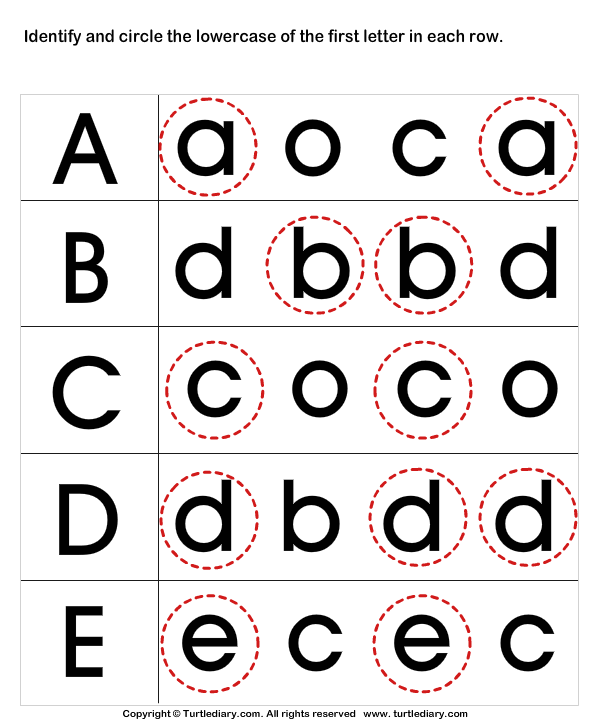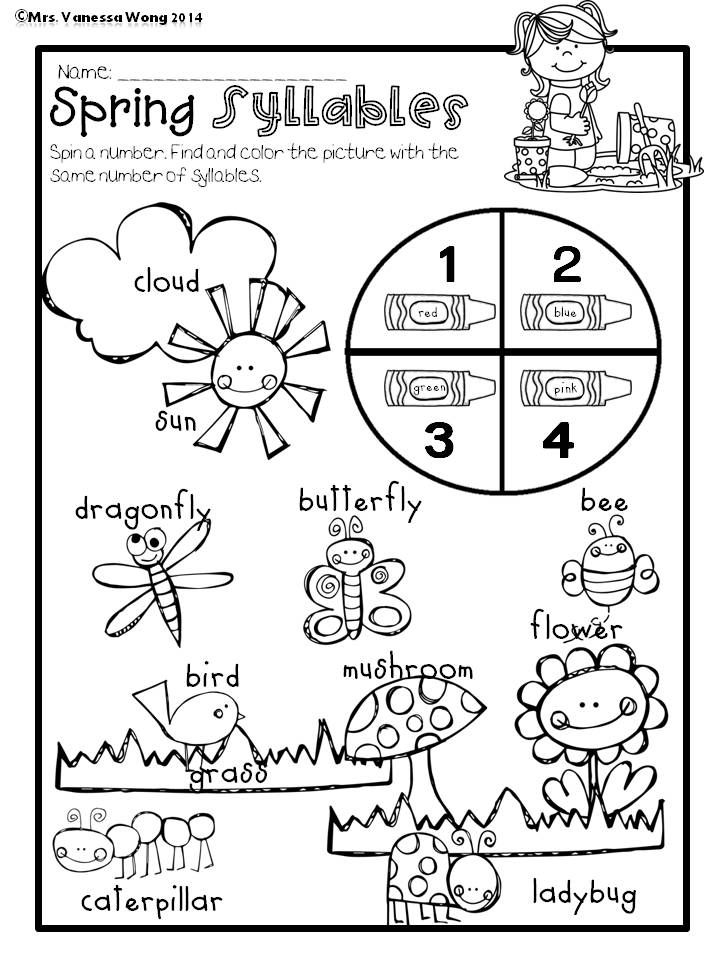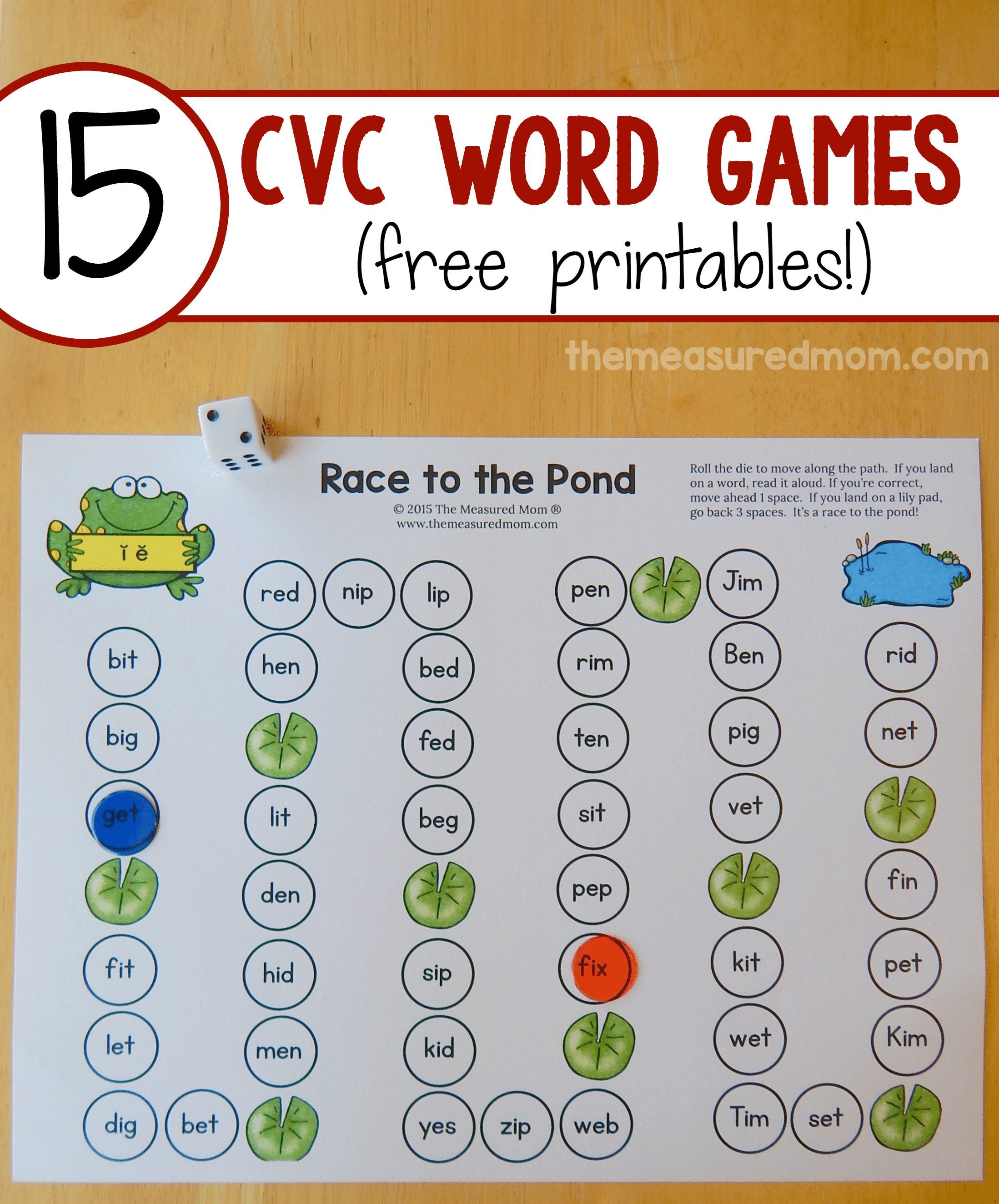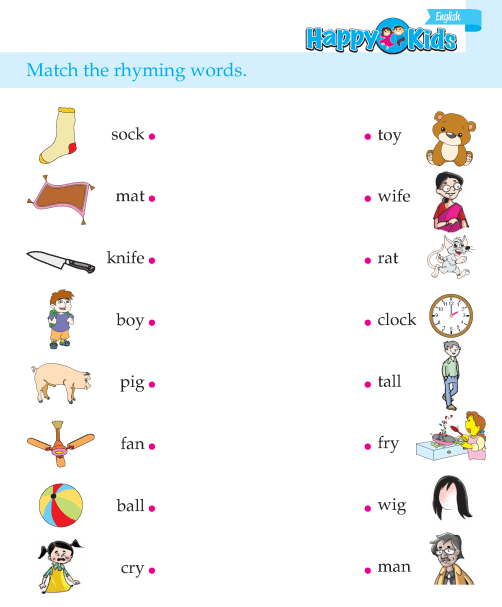Homer kid powered learning
The Essential Early Learning Program and App for Kids 2-8
Learn & Grow App
Personalized to Age and Level
Increases Early Reading Scores by 74%
1,000+ Activities Across Subjects
Start Your Free Trial
Playful Learning They’ll Love
Our program delivers playful learning across subjects, building the skills kids need through lessons and activities they love.
Reading
A step-by-step pathway that leads to literacy
Math
Building blocks for math confidence
Social & Emotional Learning
Tools for navigating social skills, empathy, and confidence
Thinking Skills
Brain games for big thinking
Creativity
A space for imaginations to run wild
Explore our subjects
Ready to Sign Up?
Annual
$4.99/mo.
Billed yearly at $59.99
Start Free Trial
Lifetime
$199. 99
$99.99
Purchase today and never pay again! That’s an average savings of $200 over 2 years!
Get Started
SAVE 50%
Your Membership Includes:
Unlimited access to the Learn & Grow App
Up to 4 child profiles
Offline activities and printables
Resources and tips from learning experts
MORE TO EXPLORE!
Meet the app that helps kids navigate big feelings and everyday challenges with the help of their
Sesame Street FriendsHOMER's four-step learning framework meets Sesame Workshop's tried and true approach: teaching kids to be confident, curious, and kind.
Learn more
The Learning Journey That Grows with Your Child
Tap below to explore what they'll learn at each stage.
Toddler
Preschool
Pre-K
Early Learner
Growing Learner
Explore Ages
Personalized to Their Interests Across Subjects
Sports
Vehicles
Princesses
Dinosaurs
Animals
Kid Powered Learning
Personalized
Lessons, and activities personalized to age, interests, and skill level.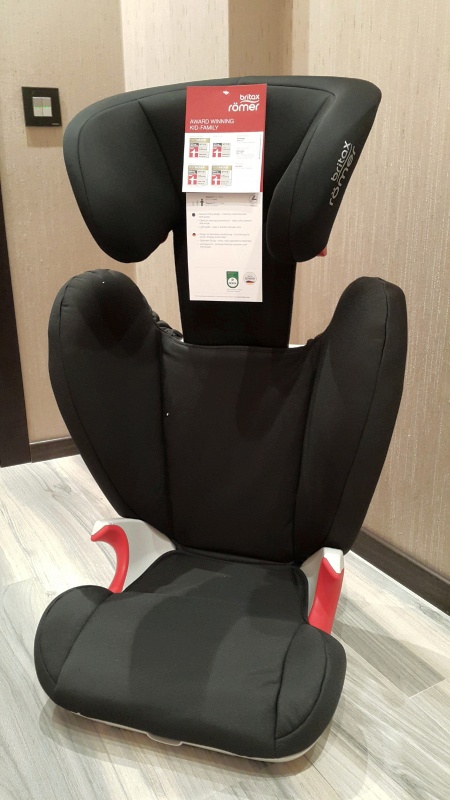
Proven
Research-backed, kid-tested, parent-approved.
“I Did It” Moments
Builds skills kids (and parents) are proud of.
Joyful
Fueled by activities kids actually want to play.
Safe & Easy
Ad-free, safe, and easy for kids to use.
The Buzz On HOMER
“HOMER is a parent’s dream! Kids are having fun, so they don’t know it’s learning. They ask to do more!”
Deb S.
“Both of my kids use HOMER’s learning program and have excelled! We’ve tried literally 20+ apps and websites, and NONE hold a candle to HOMER.”
Brittany
“My four-year-old daughter has sensory processing disorder; getting her to focus on learning can be a bit of a nightmare, but HOMER has her FULL attention.”
Katie M.
Personalization Made Easy
You tell us a little about your child, and we’ll come up with a learning journey made just for them!
We combine your child’s unique interests
with their age and current learning level
to create a personalized learning journey they love
that builds essential skills for school and life!
Get Started
The Most Effective Way for Your Child to Learn
Developed by experts, our research-based, four-step approach goes beyond rote memorization to build confidence, promote problem-solving, and foster a lifelong love of learning.

learn more
AS SEEN IN
The Essential Early Learning App For Ages 2 - 8
HOMER grows with your child on every step of their learning journey with a program personalized to their age, interests, and skill level.
Discover HOMER at Every Age
We recognize each child’s learning journey is different. Here’s an example of what your child might explore at each age!
Ages
Toddler
Preschool
Pre-K
Early Learner
Growing Learner
Reading
(FOR 2)
Personalized pathway that builds essential skills on one another—from letters and sounds to sight words, to eventually reading and spelling
Exploring Letters
Recognizing letters as special symbols
Exposure to the alphabet
Identifying uppercase letters
Listening Skills
Hearing if words are the same or different
Introduction to rhymes
Exposure to the first sounds in words
Developing Language
Practicing new and familiar vocabulary
Stringing words together
Exposure to connecting spoken and written words
Engaging with Books
Early concepts of print
Introduction to different genres
Love of reading
Math
(FOR 2)
Building blocks for math confidence: number recognition, counting, shapes, number operations and more
Developing Number Sense
Developing early number sense
Introduction to numerals
Discovering Shapes
Learning simple shape names
Identifying simple shapes
Creating with shapes
Thinking Mathematically
Practicing Counting
Verbal counting up to 10
Object counting up to 5
Exploring Spatial Concepts
Understanding spatial language (e.
 g., over, above, next to)
g., over, above, next to)Understanding ordinal numbers (e.g., first, second, third)
Social & Emotional Learning
(FOR 2)
Identifying and reacting to emotions in themselves and others
Identifying Feelings
Naming common emotions: happy, sad, mad
Learning About Themselves
Recognizing themselves as a person with unique traits
Identifying likes, dislikes, and interests
Observing Social Skills
Exploring Self-Expression
Expressing emotions through face, body, and voice
Open-ended and creative play
Exploring visual expression through art
Thinking Skills
(FOR 2)
Critical thinking, problem solving, and information processing to form new ideas
Building Memory
Matching up to four hidden items of simple images (e.
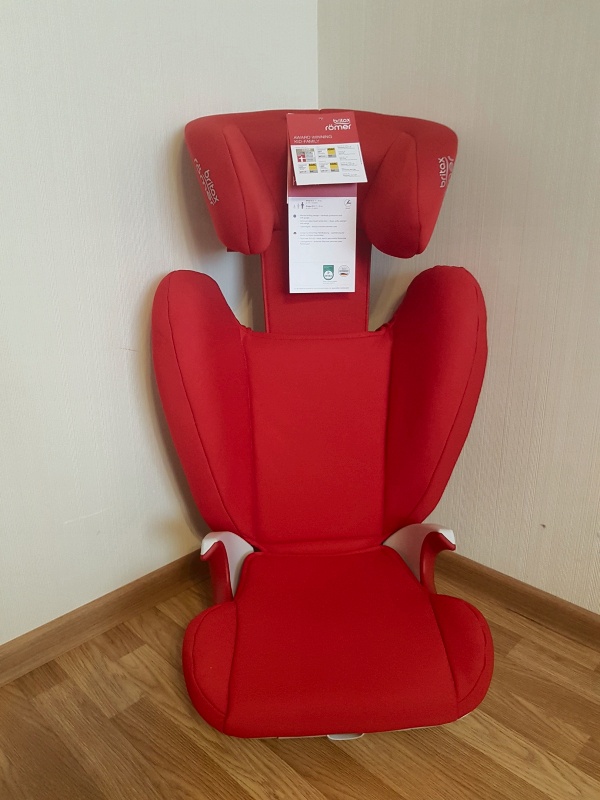 g., four animal cards)
g., four animal cards)
Focusing on Focus
Relating Learning to Life
Making connections between images and words
Making connections between objects and sounds
Creativity
(FOR 2)
An open space for imagination and expression
Fostering Imagination
Pretend play
Imitating routines
Make-believe play
Dress-up
Introducing Storytelling
Story creation
Exploring Art
Why ParentsHOMER
“Your child can use it totally on their own. The girls have absolutely loved it!”
Allie Richmond
“I wanted to find an app that had everything so I didn’t have to get multiple subscriptions: HOMER’s my favorite.”
Kristina Chaka
“Whenever I need to get things done, they stay occupied having fun while learning lessons with HOMER.”
Annie Mescall
HOMER LEARN & GROW
The Essential Early Learning Program
HOMER Learn & Grow builds skills for school and life—taking kids on a personalized learning journey that boosts their confidence and grows with them.
Explore Our App
HOMER Blog
Take the Learning Journey Offline
Find activities for your child to jump into independently or play together as a family with the HOMER Blog. Our thoughtfully curated library of activities builds on the skills your child is developing with Learn & Grow.
Explore Activities
Ready to Sign Up?
Get 30 Days FreeForced learning on online platforms 2023
Hi, I'm Sergey Mikhailov, GetCourse Managing Partner. We are an IT platform that helps to monetize author's courses. In fact, we work with most of the authors (in the B2B market), so if you have taken courses online in the last 2-3 years or follow the authors of training programs on social networks, then you have come across our platform.
In total, we employ about 10,000 course authors. And we see that this market is actively developing in Russia, but so far no one is measuring it. To get more information, we commissioned a study (PDF) of this segment.
To get more information, we commissioned a study (PDF) of this segment.
TODAY ONLY - Ask a lawyer for free!
- Ask a question via online chat
- Call the hotline: All RF - 8(800)302-58-65
I want to share interesting results and observations that help us develop the platform and enter new markets.
We interviewed 5 thousand adults (18+) residents of 500+ thousand cities. We tried to cover people of different ages and different social strata. 77% of them are employed, self-employed or freelance, and 23% are not working.
Respondents are more or less evenly distributed by age. 46% are men, 54% are women, which corresponds to the gender composition of the country's population and the Runet audience. But the share of those with higher education among the respondents is 71.4%, which is 10 percentage points higher than the national average.
General results
Globally, our study had one goal - to see the state of the online education market in Russia, in order to observe it in dynamics later.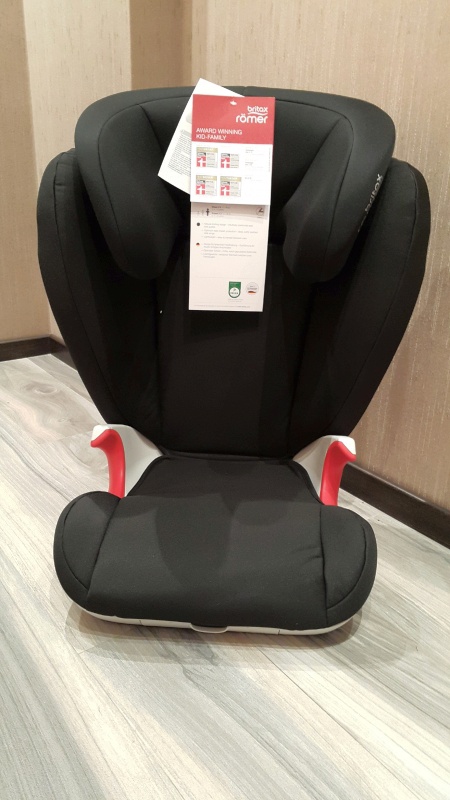 We have already planned the next study for the end of 2021. But for now, let's talk about current data.
We have already planned the next study for the end of 2021. But for now, let's talk about current data.
In general, 93% of respondents are familiar with the topic of online education, two-thirds have some experience of their own, and every second student is studying now or has studied in the last six months.
To be honest, this result surprised me. I thought that the penetration of online learning does not exceed 10-15% so far. The Covid pandemic is clearly not left out. We deliberately did not single out in the survey those whose experience of online learning was voluntary-compulsory, because regardless of their attitude to classes, they received real practical experience.
And this experience expanded the potential audience of course buyers. Even my conservative mother, having once tried online classes, expressed her willingness to buy some kind of training.
As an entrepreneur, I see this as an opportunity. Online education has overcome the primary fears of the early phase of development, we are getting ready to take off. And the optimism is reinforced by the fact that there is still a huge untapped audience on the market: 25% of respondents said they plan to try this format of study in the near future.
And the optimism is reinforced by the fact that there is still a huge untapped audience on the market: 25% of respondents said they plan to try this format of study in the near future.
Interest in the issue almost does not depend on age, but slightly decreases after 40. If other social characteristics are taken into account, the clear leaders in terms of interest in the format are students aged 18–30 and employees aged 31–35.
But among those who are just planning to experiment with online learning, men over 55 with no higher than secondary education stand out. This is probably a way for them to maintain an active presence in the labor market in an environment where many professions do not require a lifetime of experience.
We also singled out a group of ardent opponents of online learning. These include 7% of the audience - these are mostly people over 46 years old. They are much more likely to agree with the stereotypes about the ineffectiveness of online education and the waste of time on it.
The same opinion is held by holders of secondary specialized education, pensioners and the unemployed. It seems to me that skepticism is mixed with little awareness of the process itself.
11% of respondents were trained on GetCourse. This, by the way, is in good agreement with our own statistics - with the share of the Runet audience of the corresponding age, which was trained on GetCourse last year. According to our data, about 7–8% of those who, in principle, could study, studied on our platform.
PARENTS ARE NOT OBLIGED TO REGISTER THEIR CHILDREN ON EDUCATIONAL PORTALS AND USE THEM IN EDUCATION
The topic of digitalization of the information and educational environment is extremely relevant, since it is associated with risks and threats to family and childhood safety. This topic is sore for the entire parent community and defenders of national security.
Public Commissioner for Family Protection
09:40 / 12/23/2021
Changed: 12/24/2021
Increasingly, our organization receives reports from parents about the total coercion of parents to give consent to the placement of personal data of children on third-party educational platforms, in particular, NES, MES, Sferum, SberKlass, YaKlass, Uchi. ru, etc.
ru, etc.
Moreover, coercion is becoming more and more severe. In particular, parents receive threats that the refusal to register on the mentioned educational sites will be regarded as an obstacle to the realization of the children's right to education, which will be followed by a complaint from the school to the guardianship and guardianship authority.
In this regard, we inform you of the following:
Article 5.35. "Code of the Russian Federation on Administrative Offenses" dated December 30, 2001 N 195-FZ provides for liability in the form of a fine for failure to perform or improper performance by parents or other legal representatives of minors' obligations to support, educate, educate, protect the rights and interests of minors.
Parental rights and at the same time obligations in relation to the child include, among other rights:
- for raising a child;
- for the education of the child;
- to represent the interests of the child;
- to protect the child.
According to paragraph 2 of Art. 63 of the RF IC, parents are obliged to ensure that their children receive a basic general education and create conditions for them to receive a secondary (complete) general education.
Another equally important right and duty of parents is the right (and duty) to protect the child, which is provided for as paragraph 1 of Art. 64 of the IC of the Russian Federation, and the Civil Code of the Russian Federation, as well as other regulatory legal acts. Protection of the rights and interests of children includes the forms and methods established by law for the restoration of violated rights of the child, as well as the adoption of measures to prevent such violations.
In the context of the threats voiced by parents to bring them to administrative responsibility for violating the child’s rights to education, in connection with the refusal to consent to the placement of the child’s personal data on third-party educational sites, it should first of all be understood that:
— giving consent to the transfer of personal your or your child's data on any third-party sites is a RIGHT, not an obligation. It is impossible to hold parents accountable for exercising their RIGHTS;
It is impossible to hold parents accountable for exercising their RIGHTS;
— the responsibility of parents includes the right/duty to protect the interests of the child before anyone else. If parents believe that learning with the help of electronic learning tools (computers, for example) harms the health of the child (and this is objectively true), then it is impossible to hold them accountable for properly fulfilling their duties to protect the health of the child.
These are just scarecrows.
To recap the main rules of law applicable to this topic:
1) Part 1 of Article 43 of the Constitution of the Russian Federation regulates that everyone has the right to education, while by virtue of Part 4 of this Article basic general education is compulsory.
According to Art. 17 of the Federal Law "On Education in the Russian Federation" dated December 29, 2012 N 273-FZ, there are two forms of obtaining basic general education: in an educational institution and outside this institution, while training is carried out in full-time, part-time or part-time form.
The right to choose the form of obtaining basic general education belongs exclusively to parents, but not to an educational organization and not to the state.
Part 1 of Article 53 of Law N 273-FZ establishes a general rule according to which the basis for the emergence of educational relations is the administrative act of an organization engaged in educational activities, on the admission of a person to study in this organization.
Based on the administrative act of the school administration, the child is enrolled in an educational organization for full-time education in an educational organization.
At the same time, a forced change in legal relations between a student and an educational organization is illegal and unacceptable.
According to paragraph 2 of Art. 28 of the Federal Law of March 30, 1999 N 52-FZ (as amended on July 13, 2020) “On the sanitary and epidemiological well-being of the population”, programs, methods and regimes for raising and educating children are allowed for use if there are sanitary and epidemiological conclusions. The use of technical, audiovisual and other means of education and training, educational furniture, educational and other publishing products for children is subject to their compliance with sanitary and epidemiological requirements.
The use of technical, audiovisual and other means of education and training, educational furniture, educational and other publishing products for children is subject to their compliance with sanitary and epidemiological requirements.
Moreover, the burden of proving the safety of the educational environment at school lies with the educational organization.
In the absence of evidence of the safety of teaching methods at school through the use of materials posted on educational websites, as well as the absence of requirements established by the legislation of the Russian Federation to limit the time of using ESP throughout the day for teaching children, the parent has the right to refuse to experiment on their children, including over their health.
3) The provisions of Article 12 of Law N 273-FZ provide that educational programs should be developed by the educational organization itself according to state-accredited educational programs , develop educational programs in accordance with federal state educational standards and taking into account the relevant exemplary basic educational programs .
At the same time, the provisions of art. 18 of this Federal Law regulates that organizations that carry out educational activities according to state-accredited educational programs of primary general, basic general, secondary general education, for use in the implementation of these educational programs choose: textbooks from among those included in the federal list of textbooks approved for use in implementation of state-accredited educational programs of primary general, basic general, secondary general education.
The federal list of textbooks approved for use in the implementation of state-accredited educational programs of primary general, basic general, secondary general education by organizations engaged in educational activities is approved by the federal executive body responsible for the development and implementation of state policy and legal regulation in the field of general education, and includes lists of textbooks approved for use in the implementation of the mandatory part of the main educational program and the part formed by participants in educational relations.
The material of information portals most often represents only “training information” / “training service” / “additional teaching material”, which cannot be used by the teacher when conducting lessons on the main educational programs implemented in a particular educational institution, since information portals and services do not have the right to conduct educational activities under the programs of primary general education, basic general education and secondary general education, based on the above provisions of Law No. 273-FZ.
The right to conduct educational activities in general educational programs of schools must be confirmed by the presence of a valid license and accreditation in accordance with the requirements contained in Articles 91, 92 of Law No. 273-FZ.
The use of separate ready-made video lessons from educational platforms during the main lessons from educational resources is an illegal imposition of information services (in the case of MES/NES) or imposition of information services/additional education programs (in the cases of Uchi.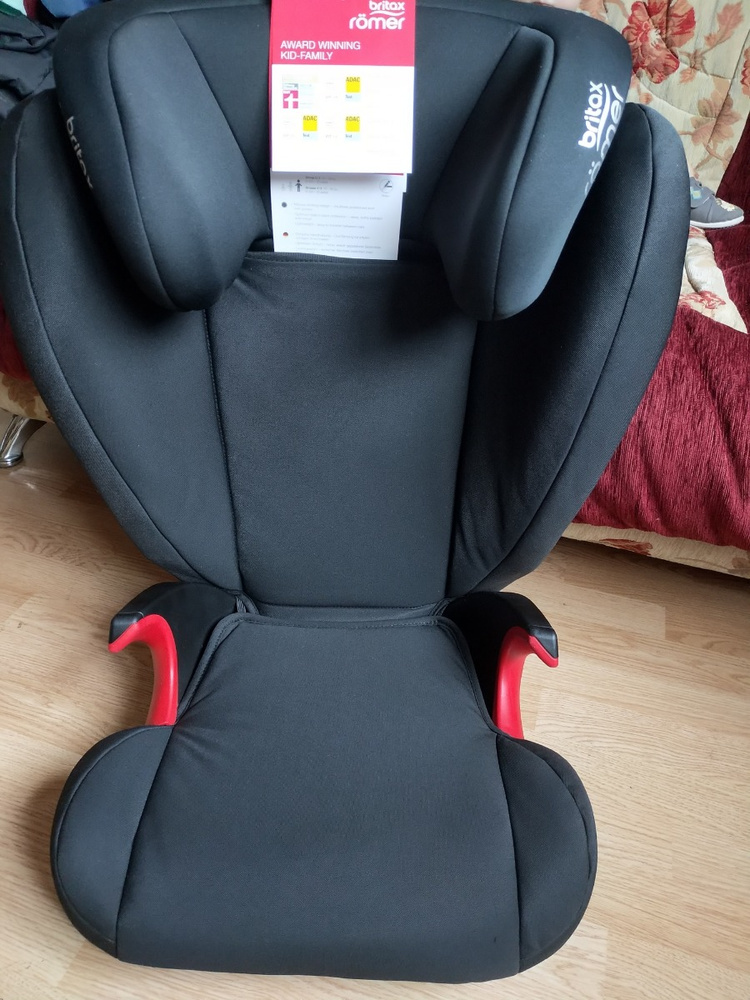 ru and SberKlass) during conducting lessons in schools according to the programs of basic education.
ru and SberKlass) during conducting lessons in schools according to the programs of basic education.
4) Compulsion to use electronic platforms/programs, as well as to register on various websites and other Internet resources, cannot be recognized as legal, since paragraph 1 of Article 9 of the Federal Law "On Personal Data" dated July 27, 2006 N 152-FZ provides that “the subject of personal data decides to provide his personal data and consents to their processing freely, by his own will and in his own interest. Consent to the processing of personal data must be specific, informed and conscious.
In accordance with Part 1 of Art. 24 of the Constitution of the Russian Federation "the collection, storage, use and dissemination of information about the private life of a person without his consent is not allowed."
By virtue of paragraph 4 of part 1 of Art. 6 of the Federal Law “On Personal Data”, the provision of state (municipal) services does not require a written consent to the processing of personal data and allows the authorized body (organization) to use the personal data of citizens only to the extent that it is necessary for the provision of services without a separate written consent for data processing.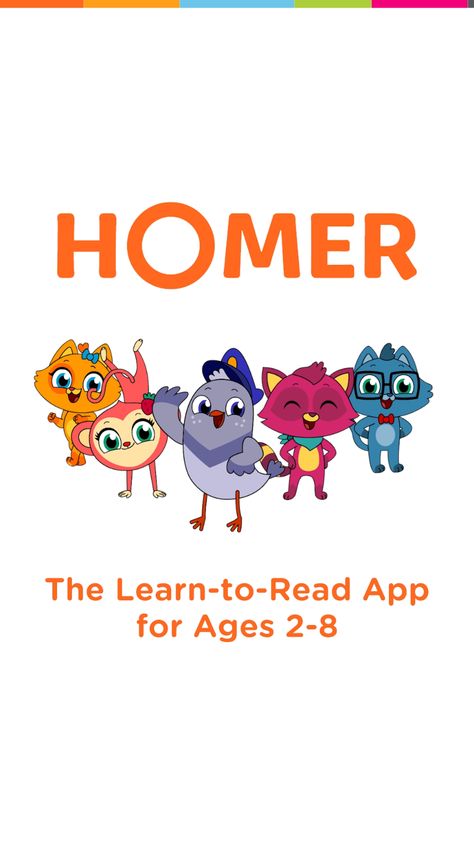
Based on paragraphs 1,2,4 and 5 of Article 9 of the Federal Law "On Information, Information Technologies and Information Protection" dated July 27, 2006 N 149-FZ, access to information is restricted, access to which is limited by federal laws and prescribing compliance confidentiality of information.
Clause 8 of Article 9 of the said Federal Law reads: “It is prohibited to require a citizen (individual) to provide information about his private life, including information constituting a personal or family secret, and to receive such information against the will of the citizen (individual), unless otherwise provided by federal laws.
In accordance with paragraph 9 of Article 9 of the Federal Law of July 27, 2006 N 149-FZ "The procedure for access to personal data of citizens (individuals) is established by the federal law on personal data."
Clauses 3 and 4 of Article 6 of Federal Law No. 149-FZ of July 27, 2006 “On Information, Information Technologies and Information Protection” state that the owner of information has the right to “allow or restrict access to information, determine the procedure and conditions such access; use the information, including disseminating it, at its own discretion; transfer information to other persons under an agreement or on another basis established by law; transfer information to other persons under an agreement or on another basis established by law; take measures to protect information; restrict access to information if such obligation is established by federal laws. ”
The personal data of my minor child when they are published, including when disseminated through publication on the information and telecommunications network of the Internet, imply access to an unlimited number of persons.
Coercion to consent to automated processing of personal data is not allowed due to the direct prohibition of illegal collection and processing of personal data contained in the above provisions of the Constitution of the Russian Federation and federal legislation.
Based on the foregoing, you, the parents, have every right to refuse to register your child on various educational sites.
At the same time, the school is obliged to ensure that the child is educated outside the use of these resources, or to provide parents with evidence that all educational material posted on these portals is certified, safe to use in the learning process, and in the absence of parental consent to the transfer of personal data child to third parties, can be provided in the form of teaching aids without the mandatory forced registration of the child on third-party sites.
What to do if you are verbally required to register on educational sites:
Option 1: Request that the school administration send you a written request from the school administration to register on these educational platforms / sites, indicating the rules of law on the basis of which you are required to do so to do (not a single director will dare to do this).
Option 2: Send a written refusal to register on educational platforms/websites.
Registration denial forms on the websites of NES, MES, SberKlass. YaKlass, Uchi.ru:
What to do if you have already been registered on any website or on one of the electronic platforms without your knowledge and consent?
1) First of all, we recommend that you refuse the automated method of processing personal data. About how to do this correctly and legally, is described step by step in this manual.
2) Request termination of this registration in simple writing to the principal:
“I am ____ full name, I am the legal representative (mother / father) of a minor student ______ full name, b. From the employees of GBOU ____, I learned that my child was registered ____ (where exactly) without my knowledge and consent. I ask you to stop registering a minor ______ on ______ (indicate who and where).
Subscribe to our resources:
Dear friends!
Our activities are voluntary and enthusiastic. We appeal to you with a request to provide all possible assistance to our expert and human rights activities to protect the traditional family and children of Russia from Western technologies and laws adapted with the help of lobbyists. With your help, we can do even more useful things in protecting the traditional Russian family!
To provide assistance, you can transfer money to a SBERBANK card 4276 5500 3421 4679 ,
recipient Baranets Olga Nikolaevna
or use the form for accepting contributions:
Russian schoolchildren are forced to abandon Zoom due to “insecurity” and switch to software Rostelecom and VK
School teachers, students and their parents began to receive urgent requests from the administrations of educational institutions to abandon Zoom. They were “offered” to move to Sferum, a joint development of Rostelecom and VK. All this is explained, among other things, by the “insecurity” of Zoom. Why Sferum was chosen as an alternative in the presence of a considerable number of other Russian analogues of Zoom is unknown
Forced import substitution
Russian schools were instructed to abandon the American video conferencing service Zoom in favor of domestic counterparts. According to the Oktagon publication, they are being forced to switch to the Sferum service, which is being developed by Rostelecom and VK (formerly Mail.ru Group).
According to the publication, the need to stop using Zoom is due to several reasons, one of which is its alleged insecurity as a service developed by a foreign company. The decision to gradually transfer schools to Sferum was made back in September 2021, but Octagon does not say who exactly made it.
Parents of schoolchildren from the Sverdlovsk region were among those who were forced to switch to Sferum. They began to receive "persuasive requests" to start a profile in the domestic video service coming from school administrations.
The use of Zoom in domestic schools is discouraged
In St. Petersburg teachers of various schools, as well as their students, received an “offer” to switch to Sferum. According to a teacher from one of the schools in the northern capital, so far it has been proposed to use Sferum only for computer science lessons. “But if we go distance again, we will work on this site,” he told the Octagon.
The authorities do not confirm anything
At the time of publication of the material, the Russian authorities neither confirmed nor denied the fact that teachers, schoolchildren and their parents were forced to switch to the Russian video service Sferum. According to representatives of the Education Committee of the Government of St. Petersburg, no documents obliging schools to register with Sferum have yet been received.
The Russians, to put it mildly, are not enthusiastic about Sferum and attempts to impose it
Authorities in the Sverdlovsk region declined to comment on this. In particular, this is how the Minister of Education and Youth Policy of the Sverdlovsk Region Yuri Biktuganov reacted to the Oktagon's request.
Import substitution is inevitable
The probability that the transition of schools to "Sferum" will still be carried out exists, and rather big. “At the moment, this is the only resource recommended by the Ministry of Education for remote lessons. Unlike social networks, the pages of educational institutions, as well as students, teachers and parents on the platform are not publicly available,” representatives of the Education Committee of the Government of St. Petersburg noted.
The fact that the transition to Sferum will take place in the foreseeable future is also indicated by the fact that the Russian Ministry of Education is among those responsible for the implementation of this software. Information about this is in the documents of the Government of Russia.
According to Oktagon, Russia has a separate plan of "actions to create additional conditions for the development of the IT industry in Russia. " One of his points includes "stimulating the transition" of Russian schools to domestically developed software. These events were due to take place by November 2021.
Schools were to be "incentivized" to switch to Russian instant messengers, video conferencing services, operating systems and office software. One of the goals of the project is “ensuring the sustainability of the educational process carried out in a remote format” and “increasing the popularity” of domestic software.
The stable version of Sferum is not yet available to Android users. The beta version requires a monstrous amount of permissions
What exactly refers to the "incentive" measures is unknown. However, the same document contains a clause on the introduction of requirements for “mandatory use of Russian software (messengers and videoconferencing) when interacting with students and their parents.” This item must be implemented by February 2023 in order to "increase demand for domestic software" and "create a unified communication environment within the educational process. "
Why exactly Sferum
At the time of publication of the material, there was no data on why Sferum is being imposed on Russian schools as an alternative to Zoom, because users are clearly not enthusiastic about this service. According to reviews from the Apple App Store, where the program was uploaded back in December 2020, its quality leaves much to be desired.
Sferum's rating on the Apple platform is only 1.5 points out of five possible. The number of negative reviews is overwhelming.
Forced transition of Russian schools to Sferum may take place in the very near future
There were no reviews for the app on Google Play as of December 6, 2021. Moreover, its page indicates that it is still in development. The date of the first appearance of the application in the store is unknown, but the number of downloads has already exceeded 500 thousand.
How to get ₽30 million to bring an artificial intelligence solution to new markets
IT industry support
As CNews reported, the premiere of Sferum took place in December 2020. Its appearance was the result of the idea of the Russian authorities to create a state-owned Russian video conferencing service that could replace Zoom. This idea was born in July 2020 after self-isolation, which was introduced in Russia on March 28, 2020 in connection with the coronavirus pandemic. Schools and universities had to switch to distance learning, and Zoom has become one of the main services for conducting lessons and couples.
A fraction of the truth
The Zoom service does carry various kinds of dangers, but the point here is not at all that it was developed in the USA. This is a very "leaky" service, equipped with a large number of vulnerabilities.
For example, Zoom has been transferring the data of its users who prefer its iOS version to Facebook for several months. Zoom fed her information about the make and model of the mobile device, the city in which the user is located, its carrier, time zone, and the device's unique advertising identifier. Facebook then used this data to target ads.
In July 2020, a flaw was found in Zoom, exploiting which hackers could run any code on the PC of users of this service running Microsoft Windows 7, Windows Server 2008 R2 and earlier.
Business told how Russian IT solutions were implemented with grant support
IT industry support
Also for a long time, Zoom did not have end-to-end encryption, which has long become part of many popular instant messengers. Subsequently, it appeared, but only for paid users, which caused a flurry of indignation, after which encryption became available to everyone.
Other Russian counterparts Zoom
There are many other video conferencing services in Russia. For example, in July 2020, Yandex announced the launch of its own video conferencing service Telebridge. It received a major update in September 2020.
Even VK itself has its own analogue of Zoom. It is called Mail.ru Video Calls and has been operating since April 2020. From the very beginning, it was positioned precisely as a tool for online learning, communication with colleagues and partners, and calls to relatives.
In January 2021, CNews reported that Sberbank had its own video service "Sbermitap" for video conferences and webinars.
In February 2021, the Russian company Spirit, in the wake of the popularity of Zoom, implemented integration with the proprietary messenger in the new version of its VideoMost video conferencing solution and redesigned the client software interface in favor of simplification. According to a company representative, the similarity of VideoMost and Zoom will contribute to a painless transition of employees of government organizations from the popular American video conferencing product to the domestic one.
Among other domestic videoconferencing developers, we would like to mention TrueConf. The main product of the company is a software system that consists of a video conferencing platform and a corporate messenger for remote work. In November 2021, as CNews reported, TrueConf held a presentation of a new generation of Russian video conferencing solutions for workplaces and smartphones designed for secure collaboration. "Under the hood" is a full-fledged messenger, large video conferences and machine learning technologies.
90+ Free Online Self-Study Resources
I want to share a list of useful educational resources, among which everyone will find something interesting and new for themselves. We will consider the main thing at the beginning - IT and foreign languages. And then there will be a selection of services and YouTube channels related to science, education in general, business and creativity.
Information technology and programming
In Russian:
- Academy.yandex.ru — Yandex — there is everything! In addition to the opportunity to enroll in one of the Yandex Academy schools, an archive of recordings of some reports is available on the site.
- Cybermarketing.ru — Professional online marketing training.
- Code.org - Everyone should be able to study computer science on a par with mainstream disciplines.
- Geekbrains.ru - Do you want to learn programming? Dozens of free materials are available on Geekbrains.
- Hexlet.io — How to become a programmer? To get started, go to this resource.
- Htmlacademy.ru - Interactive courses and intensive courses for future IT gurus.
- Lendwings.com - A good selection of courses, including free ones.
- Loftblog.ru - Portal of video tutorials on web development.
- Mail.ru — A “cellar” of neatly assembled and pickled video lectures from Mail.ru professionals and leading IT developers that you can “get and open” at a convenient time for you and taste it.
- Microsoft.com - A selection of courses from the Microsoft Virtual Academy.
- Techdays.ru - Video portal for development and modern technologies.
- Topexpert.pro — SEO, SEM, Internet marketing.
English:
- Codecademy.com - Learn to code online.
- Codeplace.com - Web development training from A to Z for beginners and advanced developers.
- Codeschool.com — Learn, practice, get things done!
- Datacamp.com - Online lessons and programming courses.
- Dataquest.io - More data for the data god. Learn to write code, work with data, and build your projects.
- Datamonkey.pro - Learn SQL and Excel, become a master of data analysis.
- Generalassembly.ly - Great sites (HTML, CSS, Javascript) with their own hands.
- Onemonth.com - Become "you" with the code for 1 month. Tempting isn't it?
- Platzi.com - Marketing, programming and design from industry leaders.
- Sitepoint.com - Ruby, PHP, SEO, design and more.
- Teamtreehouse.com - Learn HTML, CSS, mobile development and more.
- Udacity.com - The same “University of Silicon Valley”.
Foreign languages
With Russian interface or support:
- 16polyglot.ru — English (and other) languages in 16 hours! Of course, this is not entirely true, but for a trip or to start studying, that's it.
- Abaenglish.com - Free video English grammar lessons, movies and more.
- Busuu.com - Website and app. Learn with 60 million users from all over the world. Send exercises to real people to check and help others yourself.
- Duolingo.com - Website & App: Learn languages while playing.
- Lang-8.com - Social network for learning another language. Write texts, send them to other students for verification.
Check your work in your native language.
- Lingualeo.com — Personalized online service to help you learn English effectively. Website and application.
- Lingvist.io - They promise to deliver the basics of English or French in 200 hours, let's check?
- Lingust.ru - Another site with collections of materials for learning the language.
- List-english.ru - A selection of free materials in English for beginners.
- Ororo.tv - Watch movies and series with subtitles, at any time hover over an unknown word - the movie will stop, and you will be shown the translation and other useful information.
- Real-english.ru - English without fools - "Course of a young fighter".
In English:
- 40 Essential British Expressions - Youtube channel. Simple and educational animation lessons will help you better understand the language of Byron and Shakespeare.
- Anglo-linklink - Youtube channel. We learn gradually, moving from less difficult lessons to more difficult ones.
- Babbel.com - If English is already all right, here you can take on other languages. The main principle of the site is that real everyday conversations and topics are at the head of everything.
- BBC Learning English - Youtube channel. Learn a language with the British news service BBC.
- Britishcouncil.org - Large database of graphic, audio and video materials from the British Council.
- English in a minute - Youtube channel. American English for a few minutes a day. This approach will definitely appeal to people with a chronic lack of time.
- Learn English with Jennifer - Youtube channel. Half a million subscribers and dozens of video tutorials speak for themselves. We go to the channel of an experienced teacher, watch and work on ourselves.
- Planblabs.
net - Give this app 5 minutes a day.
- Memrise.com - Flashcards, flashcards, words, words.
- Rachel's English - Youtube channel. How to work with Americans? First of all, speak the same language with them.
- Quill.org - Various topics for learning English.
Science and education
In Russian:
- 4brain.ru — Develop your memory, count in your mind, master oratory skills. arzamas.academy/courses Non-commercial educational project dedicated to the humanities.
- Coursera.org — The knowledge of thousands of experts from the world's leading universities is collected just for you in one place.
- Coursmos.com - Courses on various topics are always with you. Anywhere, from any device.
- Ifmo.ru — Courses from ITMO. IT'sMOre than a UNIVERSITY.
- Gaidaruniversity.ru — Egor Gaidar Open University.
Lectures on economic and social disciplines.
- Khanacademy.org — Khan Academy promotes free and quality education for all.
- Lektorium.tv - Lectorium educational project. Online courses specially prepared by the country's leading universities are waiting for you. There are topics for everyone: high school students, students and professionals.
- Lectoriy.mipt.ru - Lecture hall. Video lectures and open educational materials of Phystech.
- Nkj.ru - Video selection of the magazine "Science and Life".
- Openedu.ru - Open education. The platform allows you to study the basic undergraduate disciplines of Russian universities through online courses. Among the organizing partners are Moscow State University, St. Petersburg State University, St. Petersburg Polytechnic University, National Research University Higher School of Economics, Moscow Institute of Physics and Technology, ITMO.
- Postnauka.
ru — Short video lectures, monologues of scientists on the topic of their research. Scientific theories, concepts, ideas and facts.
- Pushkininstitute.ru - Education in Russian. Project of the Pushkin State Institute of the Russian Language.
- Theoryandpractice.ru - Theory and practice - a place on the network to share knowledge.
- Totaldict.ru - Online preparation for the "Total Dictation".
- Academia — Academia project of Culture TV channel. TV project, each episode of which is an independent lecture on one of the fundamental sciences.
- Tvkultura.ru - Culture TV channel, a selection of educational videos.
- Universarium.org - Universarium - an open system of electronic education. Free educational programs from the best universities in Russia.
- Univertv.ru - UniverTV open educational video portal. Collection of video films, recordings of lectures of leading Russian and foreign universities.
- Uchinovoe.ru — Learn new things! Not school subjects for schoolchildren.
- Universiality.com - Technology, personal growth, creativity, design, music.
- Upstudy.pro - A young aggregator of various courses, mostly offline, but online has also begun to appear. Sometimes you can catch interesting free online events from experts in various fields.
- Vnimanietv.ru — A collection of materials based on the results of Russia's first national award "Attention" in the field of educational video.
In English:
- Academicearth.org - Courses for applicants, students of colleges, technical schools and their graduates, as well as bachelors, masters, doctors of science.
- Curious.com - Learn something new every day in just 5, 15 or 30 minutes.
- Edx.org - World class quality education for everyone, everywhere.
- Gohighbrow.
com - Receive a 5-minute lesson every morning in your email.
- Mruniversity.com — Economy in all its manifestations.
- Skillshare.com - Design, Business, Technology, Photography, Cooking.
- Open2study.com - Video courses in various fields from early childhood development to astronomy.
- Udemy.com - Over 30,000 courses and educational programs, dive head first.
Business and career
In Russian:
- Businesslearning.ru - Free advanced training in the field of entrepreneurship.
- Dasreda.ru - Electronic knowledge of business school Business environment (Sberbank).
- Eduson.tv - Sales, management, personal effectiveness. All here!
- Hse.ru — Video materials of HSE business incubator
- Intuit.ru - Knowledge is your key to a new job and a higher position in the company.
- Uniweb.ru — Improve your competencies on the job.
- Skolkovo school - YouTube channel of the Moscow School of Management Skolkovo.
Creativity, miscellaneous
In Russian:
- Dancehelp.ru - Video catalog to help the choreographer.
- Smak - Airs of the TV project Smak.
- Strelka — Vimeo channel of Strelka Social Change Institute.
- Talerka.tv - Traditional recipes of the world.
- Ted.com - "Technology, Entertainment, Design" or in Russian "Science, Art, Culture". Educational videos filmed by specialists from various companies around the world. The main language is English, many have Russian subtitles.
- Fun with a brush - YouTube channel “Fun with a brush”. A small selection of non-trivial watercolor lessons.
English:
- Chesscademy.
com - Everything you need to learn how to play chess. Online.
- Guides.co - Every day, authors, educators, marketers and bloggers add to a huge collection of guides (guides) on various topics.
- Pianu.com - Everyone can learn to play the piano.
- Yousician.com — Do you prefer strings to keys? Then this resource is for you.
- DrawWithJazza - YouTube channel with video tutorials on creating cartoon characters.
- LighterNoteProd - Youtube channel with practical advice for aspiring artist.
Use, study, discover something new every day!
I'm waiting in the comments for links to resources that you yourself use. What do they provide, how do they work and why exactly these services, and not one of 10 other similar ones.
- Educational process in IT
- Reading room
For Parents: Teaching Children Orientation and Mobility / Un Certain Regard
- May 12, 2020
Description
Parents are the best defectologists for their child. Even if a typhlopedagogue deals with a child, parents need to practice the acquired skills every day. If a parent understands the potential of the child and can teach the necessary things on their own, this greatly simplifies the life of the family and the child. This course is for those who want to help their blind child learn the necessary orientation skills faster and become more independent.
The course lasts 72 academic hours. Since the course is practical, distance learning is not possible.
The main part of the course is learning how to walk with a cane indoors and outdoors. The cane for the duration of the training is provided by the Un Certain Regard program.
The course includes the following cane techniques: Constant Contact, Diagonal, 3 Touch, Touch-Slide Tracking, Open Space Crossing, Obstacle Survey and Avoidance, Doors, Stairs up and down", etc. Parents will get acquainted with the techniques of using a cane and the situations in which the techniques are used.
Movement on the street requires special consideration. Parents will learn how to make routes and select the necessary cane techniques. They will learn how to teach the crossing of passages, how to behave correctly during the independent movement of the child. Parents will learn how to create relief route maps and learn how to work with maps.
Exam
Building a route on the street using a verbal and tactile map.
Founder
Alisher Usmanov's Art, Science and Sport Charitable Foundation as part of the Un Certain Regard program to support people with visual impairments.
Additional information
Applications are accepted from persons residing in the following districts: Central Federal District, Northwestern Federal District, Volga Federal District, North Caucasian Federal District, Crimean Federal District.
The course consists of 2 stages of 30 astronomical hours, of which 20 hours with an instructor, 10 hours are self-working out of the material covered.


